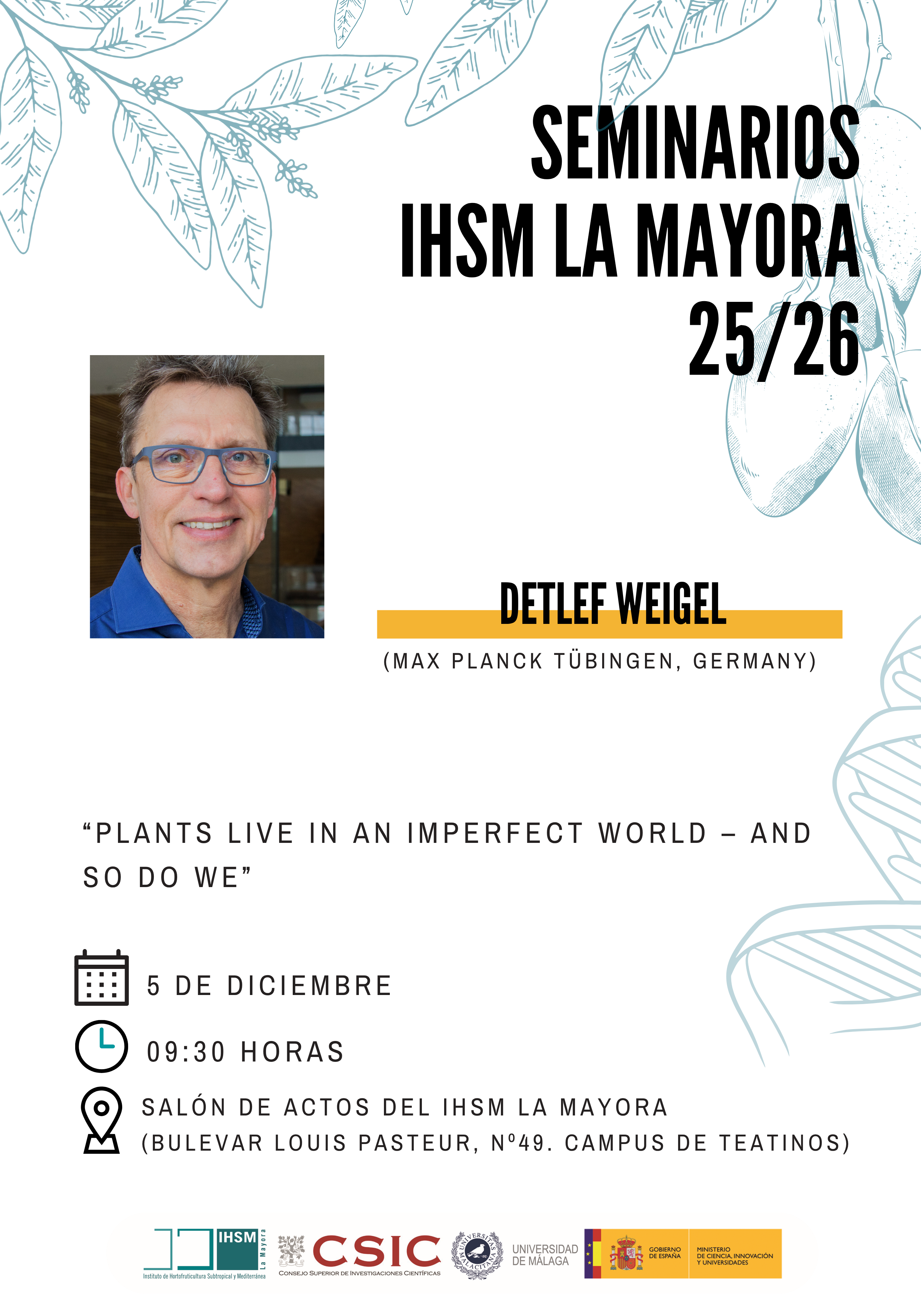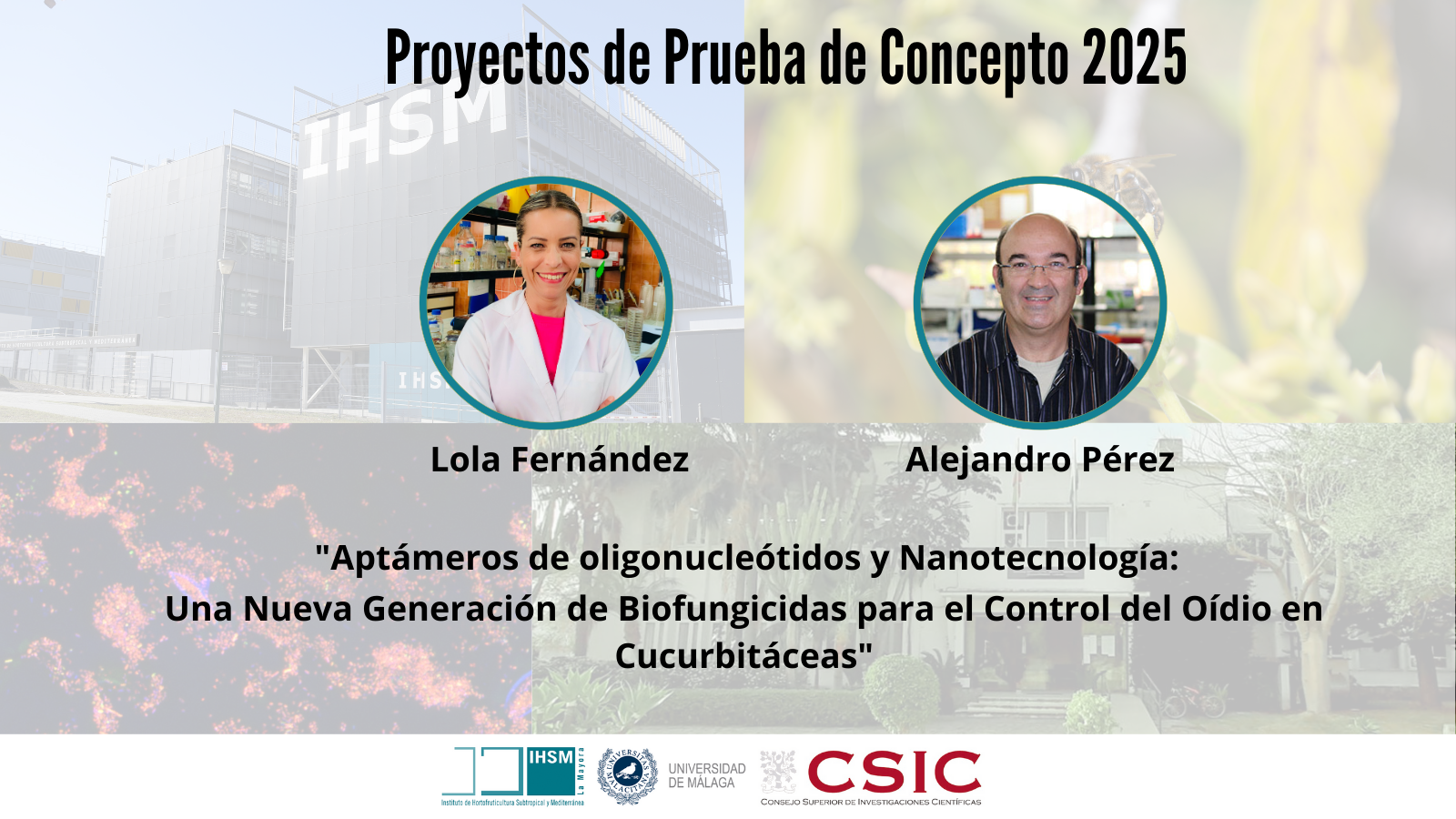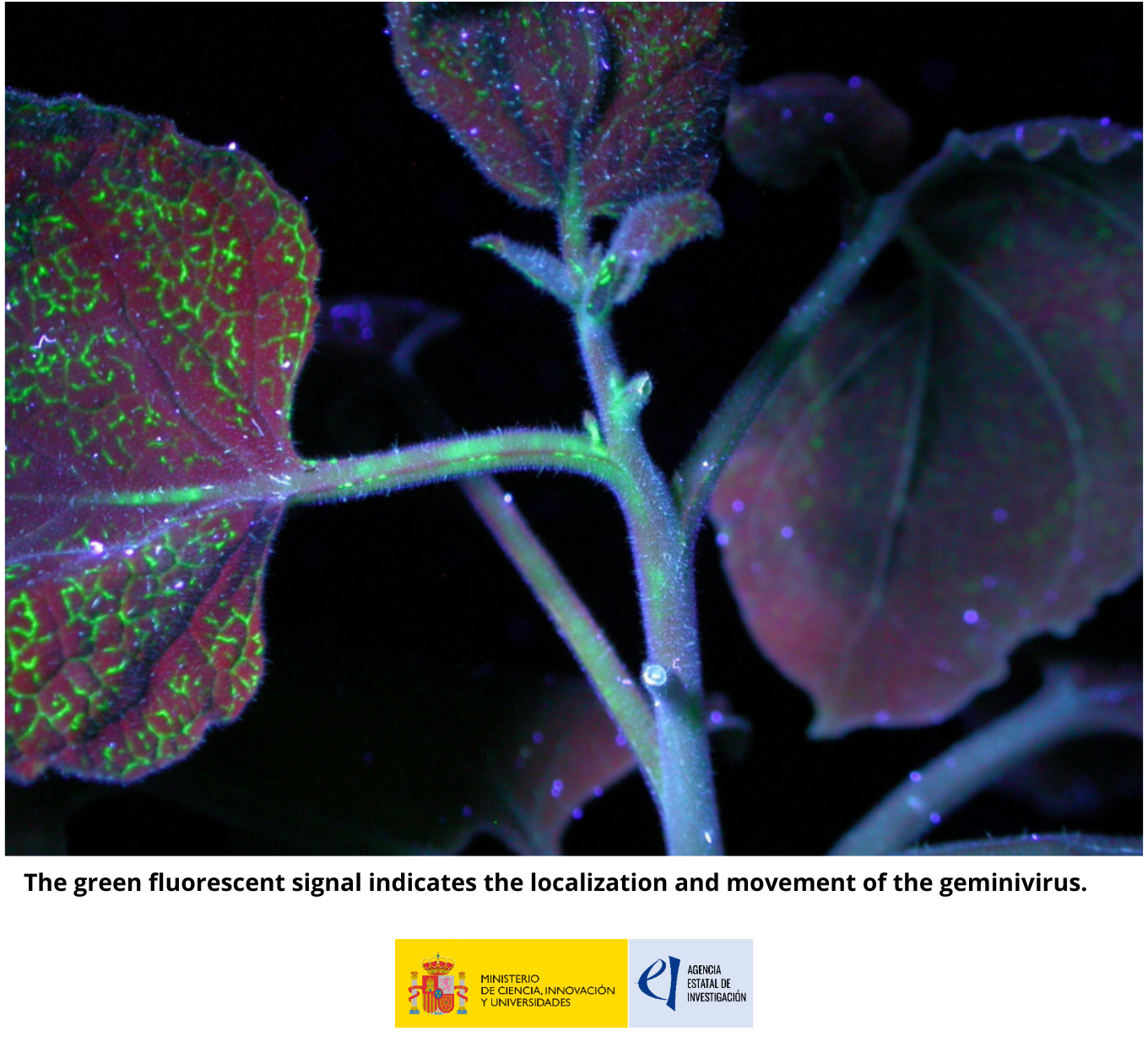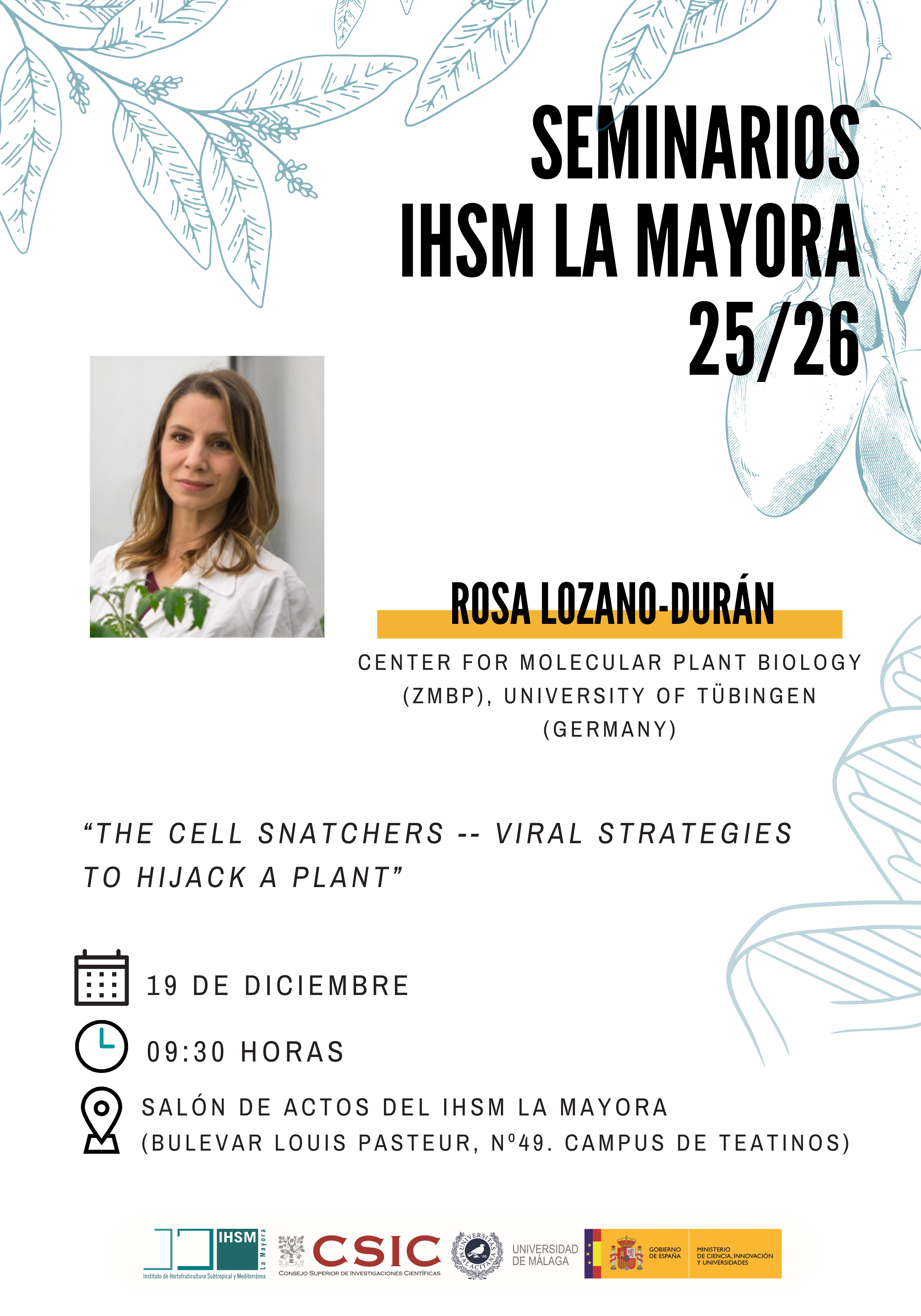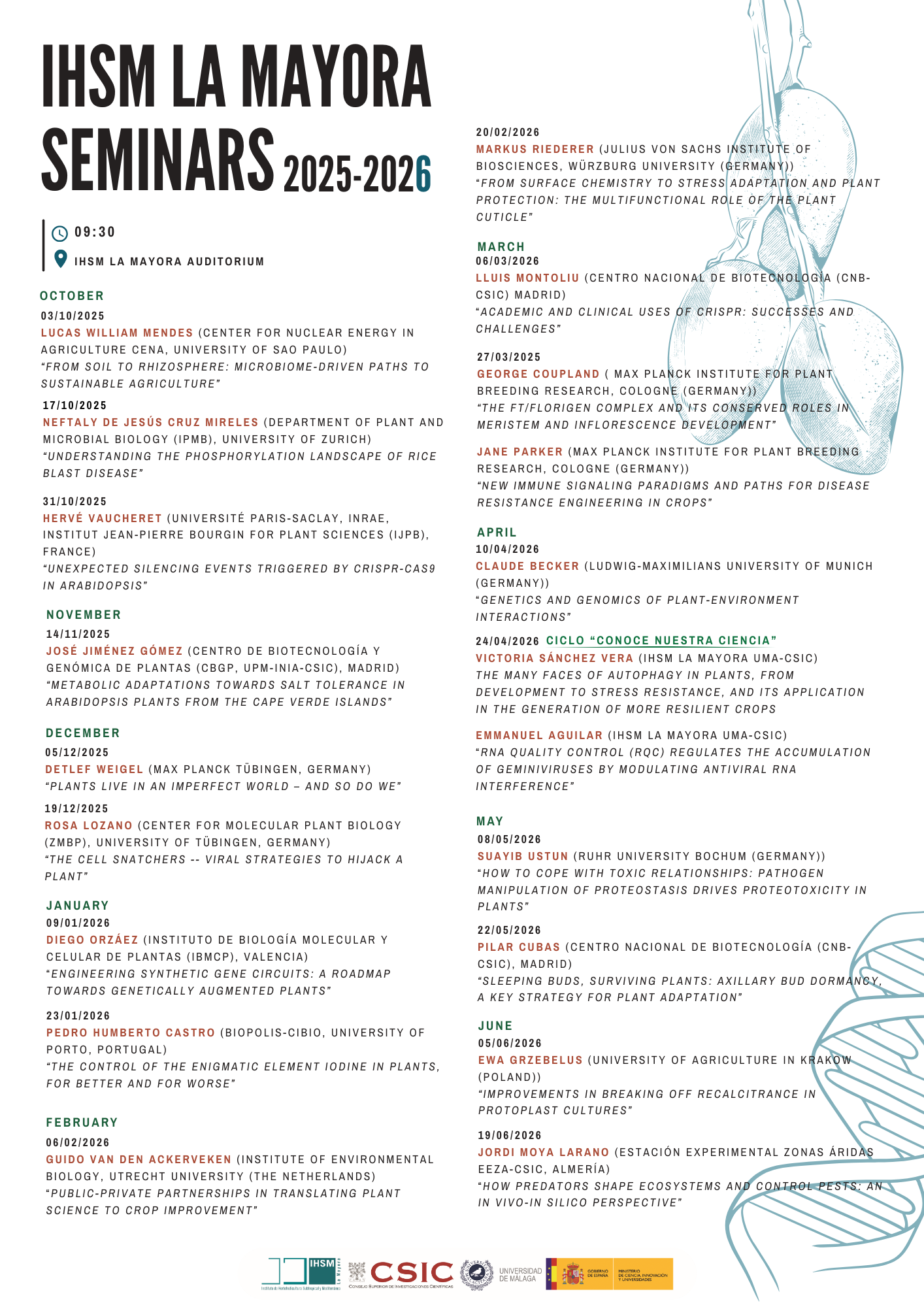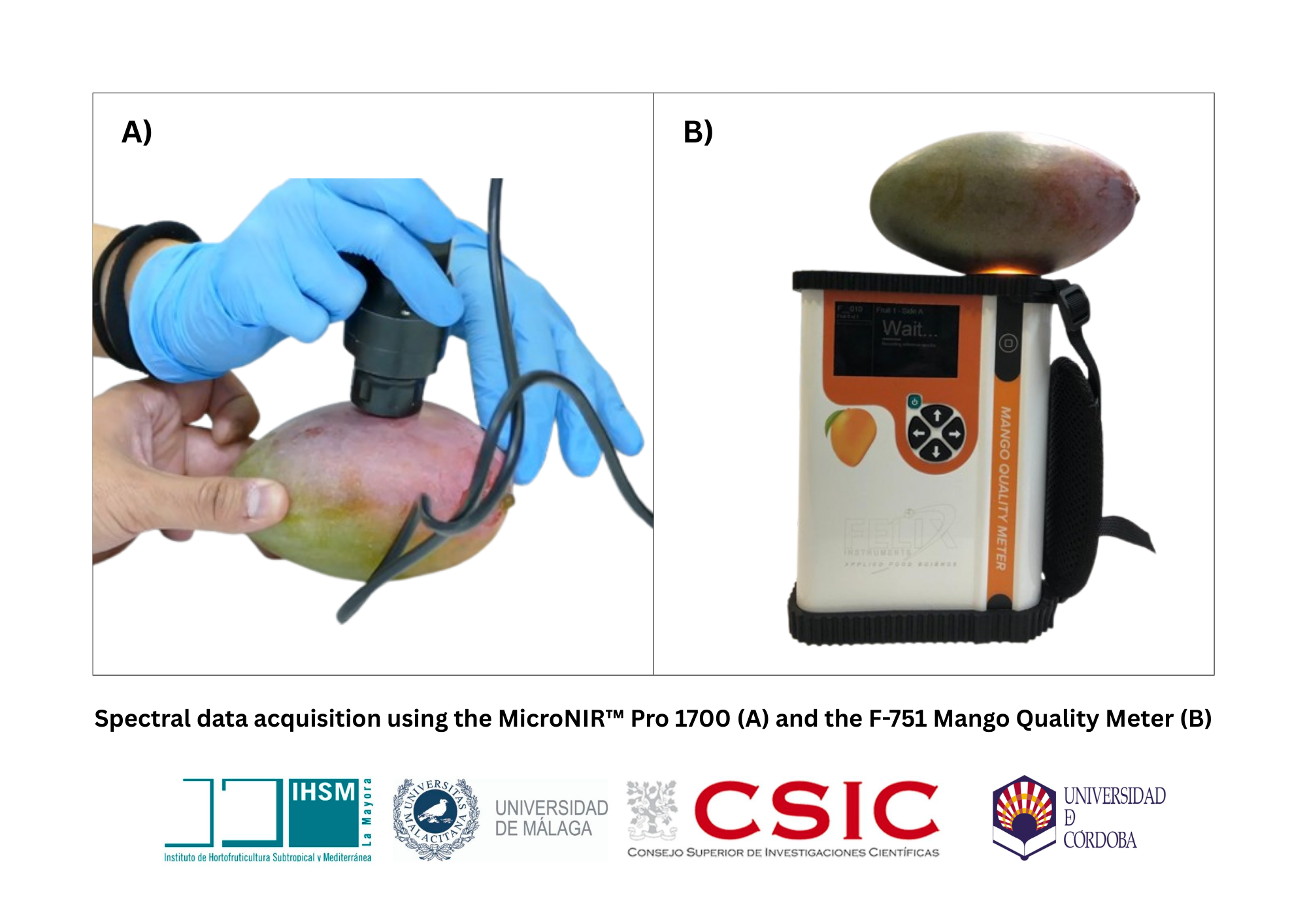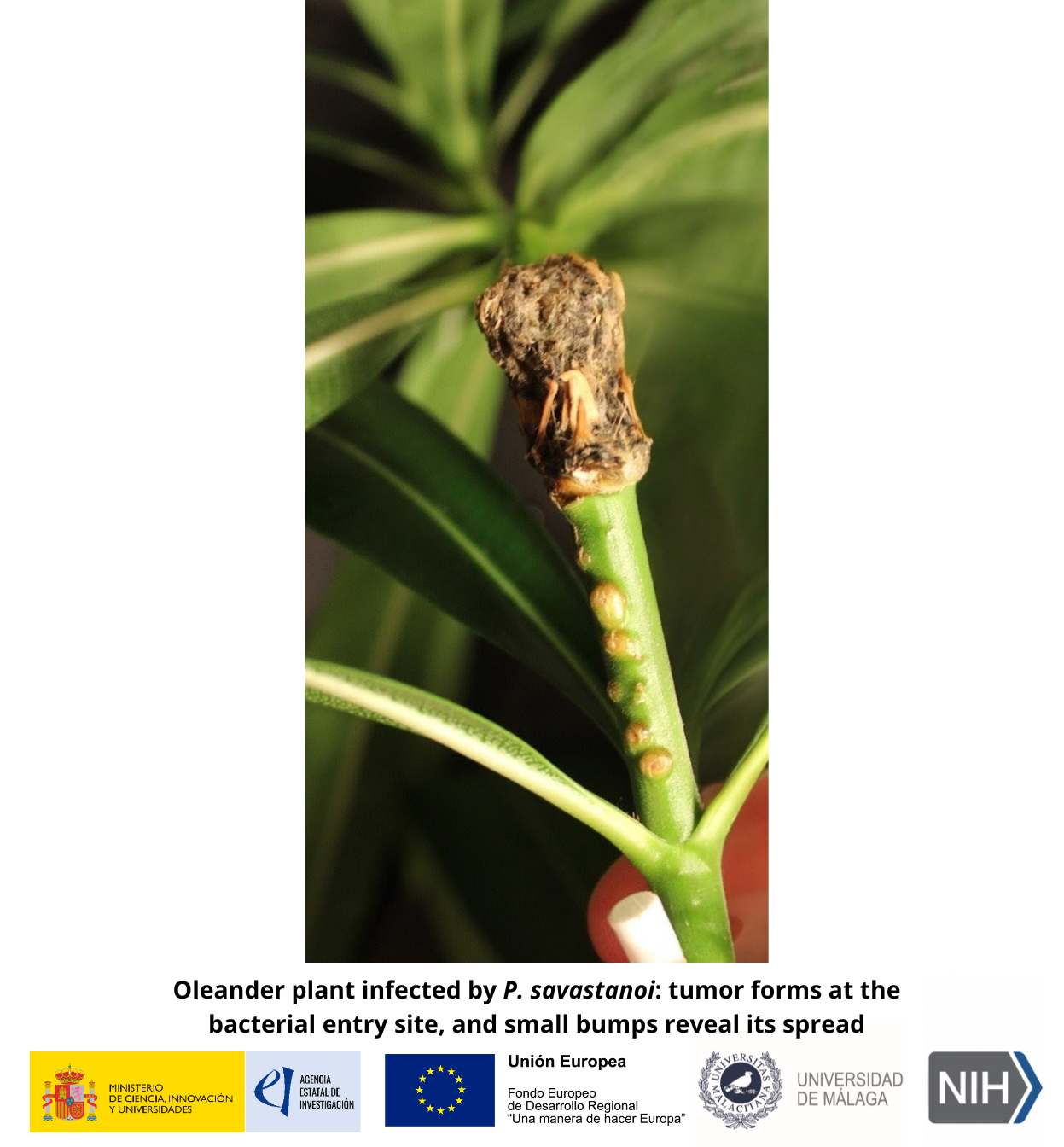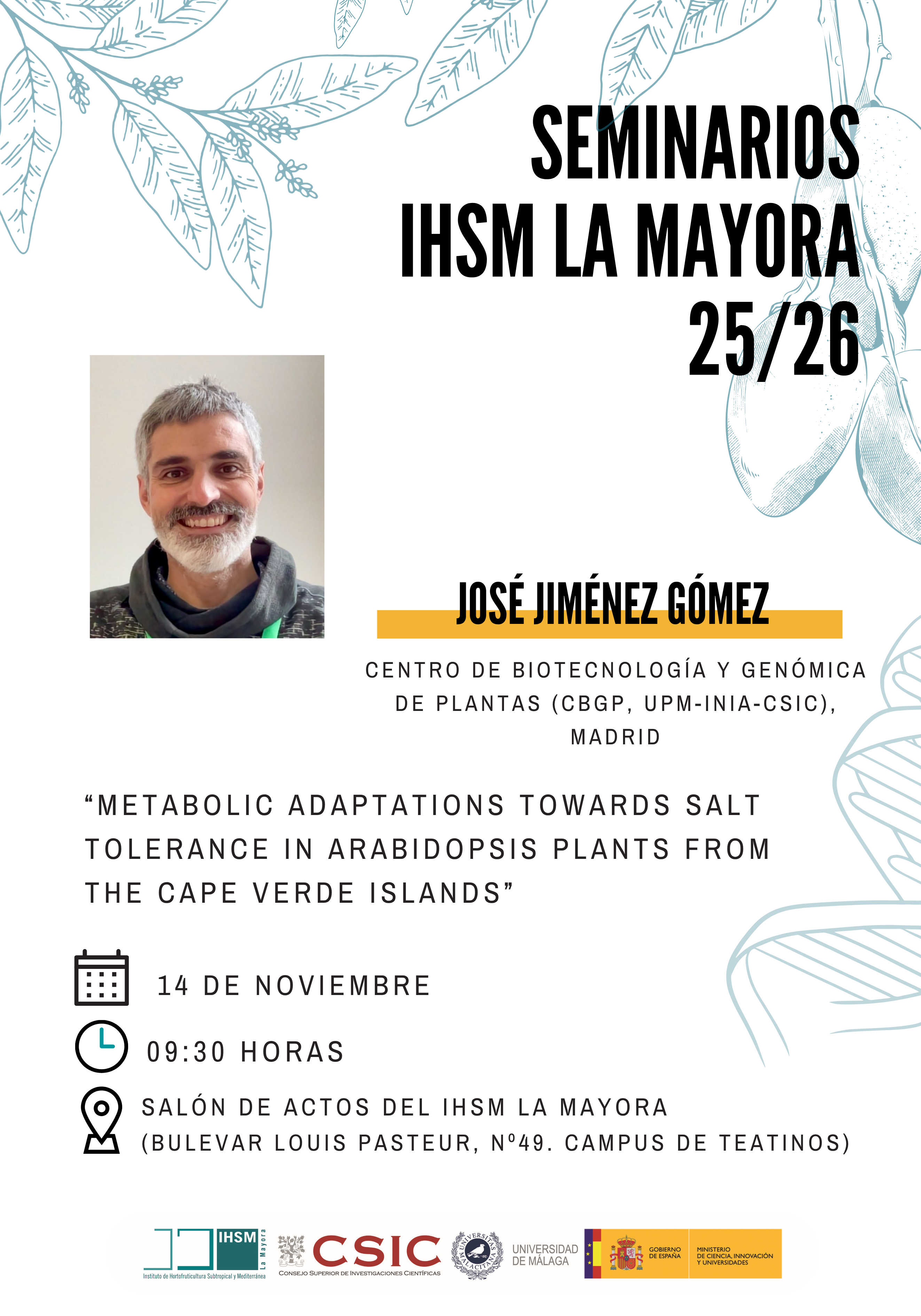
Seminarios IHSM La Mayora - José Jiménez Gómez (Centro de Biotecnología y Genómica de Plantas (CBGP, UPM-INIA-CSIC), Madrid)
Understanding how plants evolve to thrive in challenging environments can reveal new strategies to improve crop production under stress. Natural populations of Arabidopsis thaliana have persisted for over 6,000 years in the Cape Verde Islands, an archipelago located 600 km off the coast of Africa.We studied the metabolome of plants from these islands and discovered a metabolite not present in A. thaliana from other parts of the world. We identified this compound as glucuronyl-mannose and traced its production to a mutation in an alpha-glycosidase gene. Remarkably, we found that mutations disrupting the function of this gene have occurred independently on two different islands within the Cape Verde archipelago, revealing a case of parallel evolution, and suggesting positive selection associated with the production of glucuronyl-mannose in these environments. Indeed, plants carrying the mutant alleles, thus producing glucuronyl-mannose exhibit improved germination rates, longer roots, enhanced water status and higher fitness when exposed to salt stress. Interestingly, no defects in growth or pathogen defenses were found under standard conditions, suggesting that mutation of the alpha-glycosidase gene or production of glucuronyl-mannose can be a knowledge-based approach to developing salt-resilient crops.

